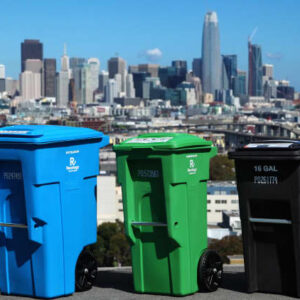Waste management is the process of collecting, transporting, processing, recycling, and disposing of waste materials in a responsible manner. It aims to reduce environmental impact, promote sustainability, and ensure public health.
1. Types of Waste
Waste can be categorized into various types based on its origin and composition:
Municipal Solid Waste (MSW) – Household and commercial waste, including food scraps, plastics, paper, and packaging.
Industrial Waste – Byproducts from factories, manufacturing units, and construction sites.
Biomedical Waste – Medical waste from hospitals and clinics, such as syringes, gloves, and pharmaceutical residues.
Electronic Waste (E-Waste) – Discarded electronic devices like computers, mobile phones, and batteries.
Hazardous Waste – Toxic substances from chemical plants, oil refineries, and other industries.
2. Importance of Waste Management
Proper waste management is essential for:
Environmental Protection – Reduces pollution, conserves natural resources, and prevents landfills from overflowing.
Public Health – Minimizes the spread of diseases caused by improper waste disposal.
Resource Conservation – Encourages recycling and reuse of materials.
Energy Generation – Converts waste into renewable energy through waste-to-energy plants.
3. Key Steps in Waste Management
Effective waste management follows a structured process:
A. Waste Generation & Segregation
Households and businesses generate different types of waste. Proper segregation into biodegradable, non-biodegradable, and hazardous waste is crucial for efficient disposal.
B. Collection & Transportation
Municipal bodies and private companies like Wastix collect waste from homes, offices, and industries.
Waste is transported via garbage trucks, compactors, and specialized collection vehicles to processing facilities.
C. Recycling & Processing
Composting: Organic waste is converted into compost for agricultural use.
Recycling: Plastic, paper, metal, and glass are processed and reused.
Waste-to-Energy Plants: Non-recyclable waste is converted into energy through incineration or biogas production.
D. Disposal of Residual Waste
Sanitary Landfills: Non-recyclable and non-biodegradable waste is disposed of in scientifically managed landfills.
Incineration: Hazardous and medical waste is burned at high temperatures to prevent contamination.
4. Challenges in Waste Management
Despite structured waste management systems, challenges persist:
Lack of public awareness about waste segregation.
Overburdened landfills causing pollution.
Inadequate recycling infrastructure.
Improper disposal of hazardous and e-waste.
5. How Wastix Contributes to Efficient Waste Management
Wastix provides innovative solutions for effective waste management:
Door-to-door collection services.
Emphasis on waste segregation and recycling.
Collaboration with waste-to-energy plants.
Eco-friendly disposal methods to minimize landfill waste.
6. Conclusion
Waste management plays a crucial role in creating a clean and sustainable environment. Wastix ensures proper waste handling through responsible collection, recycling, and disposal. Book a waste collection service with Wastix today and be a part of the green movement!
For more details, visit Wastix Website and experience hassle-free waste disposal!
gapsits
Related Posts
- 11 months ago
- 11 months ago
- 11 months ago
- 11 months ago




